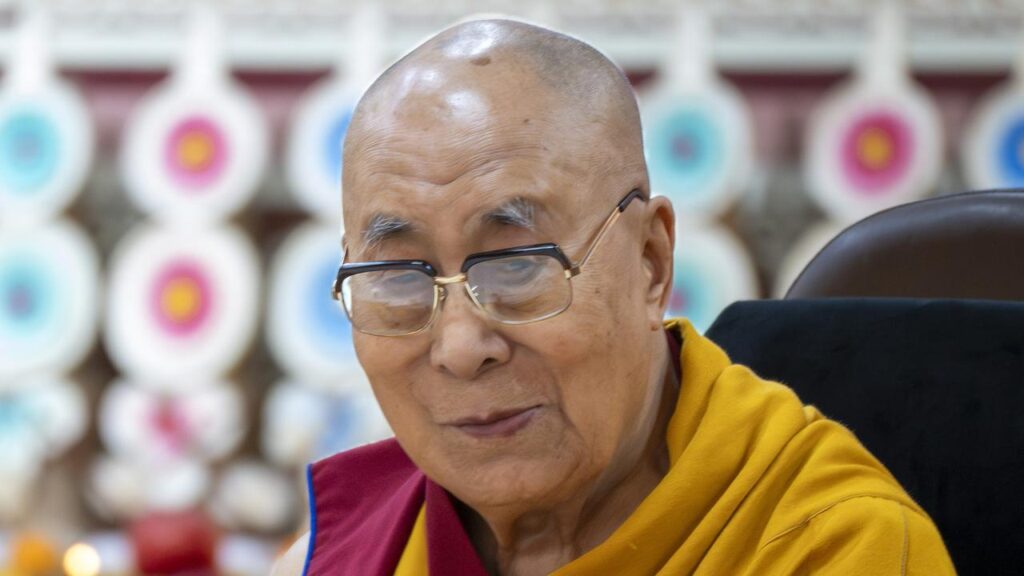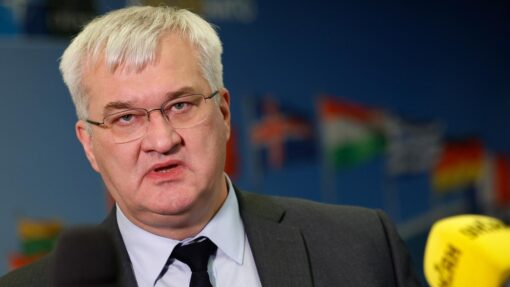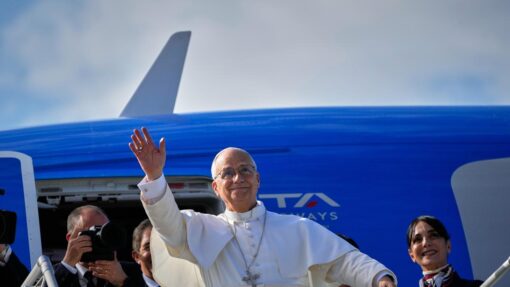Leader of Tibetan Buddhism won’t be the last Dalai Lama
Sheikh Saaliq |

Tibetan spiritual leader the Dalai Lama has declared the centuries-old Tibetan Buddhist institution will continue after his death, ending years of speculation that started when he indicated that he might be the last person to hold the role.
Speaking at prayer celebrations before his 90th birthday on Sunday, the Nobel Peace Prize-winning spiritual head of Tibetan Buddhism said the next Dalai Lama should be found and recognised as per past Buddhist traditions, while signalling that China should stay away from the process of identifying his successor.
The Dalai Lama’s succession plan is politically consequential for most Tibetans who oppose China’s tight control of Tibet and have struggled to keep their identity alive, in their homeland or in exile.
It is also profound for Tibetan Buddhists who worship him as a living manifestation of Chenrezig, the Buddhist god of compassion.
The decision, however, is expected to irk China, which has repeatedly said that it alone has the authority to approve the next religious leader.

It insists the reincarnated figure must be found in China’s Tibetan areas, giving Communist authorities power over who is chosen.
Many observers believe there eventually will be rival Dalai Lamas – one appointed by Beijing, and one by senior monks loyal to the current Dalai Lama.
Tenzin Gyatso became the 14th reincarnation of the Dalai Lama in 1940.
He fled Tibet when Chinese troops crushed an uprising in the Tibetan capital Lhasa in 1959 and has been living in the town of Dharamshala in India since then, helping establish a democratic government-in-exile while also travelling the world to advocate autonomy for the Tibetan people.
Tibetan Buddhists believe the Dalai Lama can choose the body into which he is reincarnated, as has happened on 14 occasions since the creation of the institution in 1587.
He has reiterated in the past that his successor would be born outside China.
The Dalai Lama laid out his succession plan in a recorded statement that was televised at a religious gathering of Buddhist monks in Dharamshala.
He said the process of finding and recognising his reincarnation lies solely with the Gaden Phodrang Trust – a non-profit he founded in 2015 that oversees matters related to the spiritual leader and the institute of the Dalai Lama.

“No one else has any such authority to interfere in this matter,” he said, adding the search for a future Dalai Lama should be carried out in “accordance with past tradition”.
Asked on Wednesday about the Dalai Lama’s announcement, Chinese foreign ministry spokesperson Mao Ning said “the reincarnation of the Dalai Lama must adhere to the principles of domestic search in China” and “approval by the central government”.
Mao told reporters at a daily briefing that the process must “follow religious rituals and historical settings, and be handled in accordance with national laws and regulations”.
The Dalai Lama has often urged his followers to reject anyone chosen by Beijing.
The self-proclaimed Tibetan government-in-exile he once headed before relinquishing his political role in 2011 also supports this stance.
Penpa Tsering, the president of the government-in-exile, said Tibetans from around the world made “an earnest request with single-minded devotion” that the position of the Dalai Lama should continue “for the benefit of all sentient beings in general and Buddhist in particular”.
Tsering warned China not to meddle in the process of the Dalai Lama’s succession, saying it is a “unique Tibetan Buddhist tradition”.
The search for a Dalai Lama’s reincarnation begins only upon the incumbent’s death.
In the past, the successor has been identified by senior monastic disciples, based on spiritual signs and visions, and it can take several years after the next Dalai Lama is identified as a baby and groomed to take the reins.
AP


